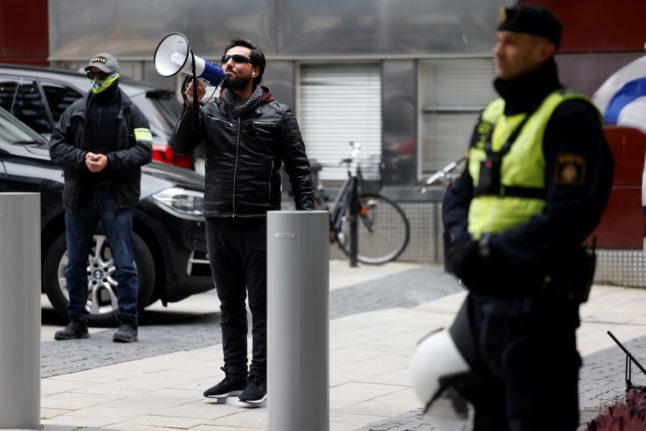Sweden’s Migration Agency has revoked Momika’s refugee status and recalled his residency permit, which had been due to run out in April 2024, after concluding that he had provided false information in his original application.
“I’m not leaving Sweden. I’m going to live and die in Sweden,” Momika told SVT after the decision. “The Migration Agency has made a serious mistake. I suspect that there is a hidden political motive behind this decision and I am going to appeal.”
But on Thursday, the Migration Court of Appeal rejected Momika’s appeal almost as soon as it was submitted.
Momika, together with his accomplice Salwan Najem, carried out a series of anti-Islamic demonstrations in Sweden earlier this year, several of which have involved him burning copies of the Quran, the holy book of Islam.
READ ALSO:
- How Sweden’s strong free speech laws explain Quran controversy
- Iraq asks Sweden to extradite Quran burner – but is it even possible?
- Stockholm Quran burner allegedly assaulted by man wearing boxing gloves
- Sweden launches inquiry into stopping Quran burnings on security grounds
In its decision, the Migration Agency recalled Momika’s residency permit and right to work in Sweden, revoked his refugee status, and ordered him to be deported, with a five-year ban on returning.
Momika registered as an asylum seeker in Sweden in April 2021, and was later given residency for three years.
“The reason [behind the decision] is that we have realised that he submitted inaccurate information about his need for protection when he applied for residency,” Jesper Tengroth, the press spokesperson for the Migration Agency, told SVT. “I cannot go into detail.”
However, it is far from certain when, or even whether, Momika will be returned to Iraq, as the agency believes that he risks mistreatment if he returns.
According to the broadcaster TV4, he has received a new temporary residency until April 2024 as the agency judges that it is not safe for him to return to Iraq.
“What we have decided is that this person risks torture and inhumane treatment if he returns to his homeland,” Tengroth told the broadcaster. “For that reason have we decided that there is an obstacle to carrying out the deportation.”



 Please whitelist us to continue reading.
Please whitelist us to continue reading.
Member comments